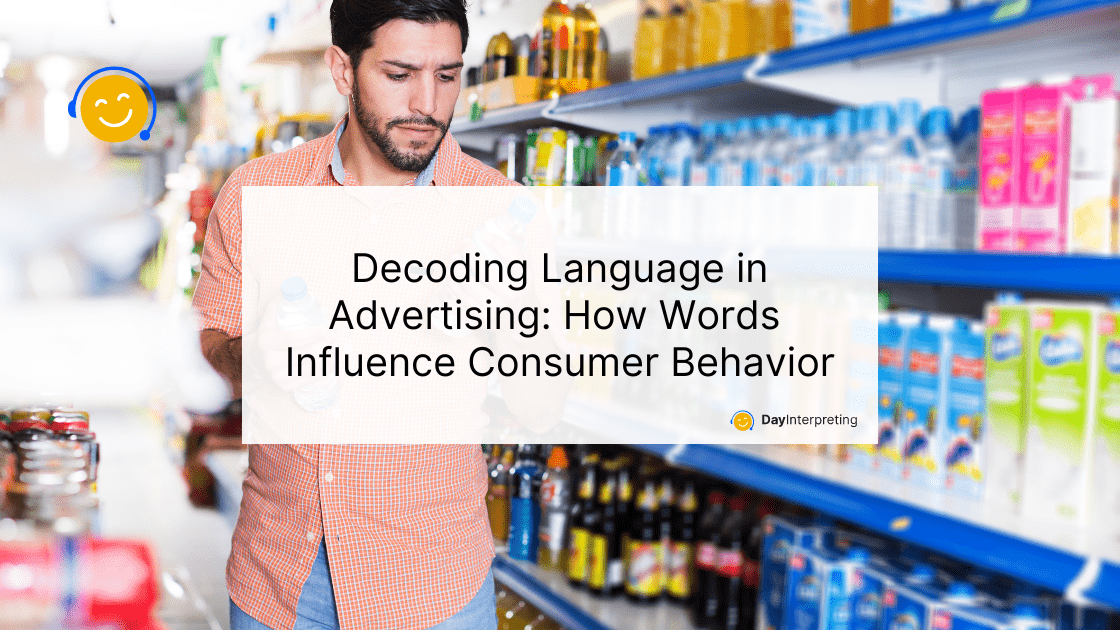Advertising is everywhere, from TV commercials to billboards and social media posts. But have you ever wondered why certain ads make you feel excited or why some products suddenly seem irresistible? The secret often lies in the language used in these ads. Let’s dive into how language in advertising can influence what we buy and why we feel the way we do!
The Magic of Language in Advertising
Crafting the Perfect Message
Have you ever noticed how some advertisements use specific words that catch your attention? Words like “limited-time offer” or “exclusive deal” are carefully chosen to make you act quickly. Advertisers know that certain words can trigger emotions and prompt us to make a purchase.
For example, when you see an ad that says, “Only a few left,” it creates a sense of urgency. You might think, “I need to get this before it’s gone!” This feeling is called “scarcity,” and it’s a powerful tool in advertising.
The Power of Positive Language
Words that make us feel good can also influence our decisions. Advertisers often use positive language to make their products seem more appealing. Phrases like “luxurious comfort” or “award-winning taste” make us imagine how great it would be to own or use that product.
Think about ads for new cars that describe them as “sleek” and “state-of-the-art.” These words help create a picture in your mind of how amazing the car will be, making you more likely to want one.
Emotional Triggers in Ads
Connecting Through Stories
Stories are a big part of advertising because they help us connect with the message. Ads that tell a story can make us feel more involved and emotionally connected. For instance, an ad showing a family enjoying a meal together might use words like “heartwarming” and “togetherness.” These words help create a positive feeling and make the product seem more appealing.
When we see a story in an ad that resonates with us, we are more likely to remember the product and consider buying it. It’s like the ad is speaking directly to our hearts!
Creating a Sense of Belonging
Another way ads use language is by making us feel like we belong to a special group. Phrases like “join the movement” or “be part of the elite” can make us feel like we’re part of something exciting and exclusive. This feeling of belonging can make us more eager to buy the product.
For example, an ad for a trendy clothing brand might use phrases like “wear what the stars are wearing” to make us feel like we’re part of a fashionable group.
Words that Make Us Act
The Call to Action
A strong ad often includes a “call to action,” which is a clear instruction on what to do next. Words like “buy now,” “call today,” or “sign up” guide us on how to act if we’re interested in the product. A good call to action is direct and easy to follow, making it simple for us to make a decision.
Creating a Sense of Urgency
Besides using words like “limited-time offer,” advertisers might use phrases like “act fast” or “while supplies last” to create a sense of urgency. This makes us feel like we need to act quickly to get the deal or product before it’s too late.
How Language in Advertising Shapes Perceptions
Influencing How We See Products
The way words are used in ads can shape how we perceive a product. Descriptive words like “high-quality,” “premium,” and “innovative” can make a product seem more valuable and worth the price. When ads use such words, they help us see the product in a more positive light.
The Role of Imagery and Language
Ads don’t just use words alone; they also combine language with images to enhance their message. For example, an ad for a new phone might show a sleek, modern design with words like “cutting-edge technology.” The combination of visual appeal and powerful language makes the product seem even more desirable.
Wrapping Up
Language in advertising is more than just part of a message—it plays a crucial role in influencing our choices and shaping our perceptions. Advertisers can make their products seem irresistible by carefully crafting language to create urgency, evoke emotions, and inspire action. Next time you see an ad, take a moment to think about the language being used and how it might be influencing your decisions!
Understanding how words work in ads can help you become a more savvy consumer. You’ll be better prepared to make informed choices and maybe even spot the tricks that advertisers use to grab your attention. So, keep an eye out for those clever words and see if you can decode their secrets!





0 Comments